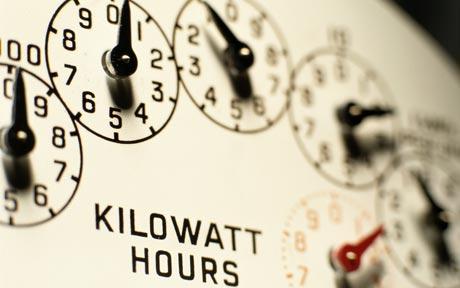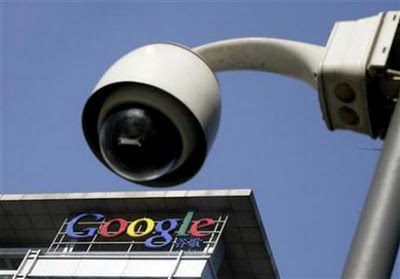The Electronic Frontier Foundation (EFF) was founded in 1990. The San Francisco based organization defends free speech, privacy, innovation, and consumer rights in a digital age. Joshua Hart of Stop Smart Meters! sat down with Lee Tien, Senior Staff Attorney for EFF to find out more about concerns that smart meters are violating our right to privacy.
SSM: What are your major concerns about smart meters?
LT: We’re very concerned about the smart meter’s ability to violate people’s privacy. It’s an issue that is really simple to grasp. For a long time, the energy usage information that utilities collect has been one big aggregated mass. For example, in the month of September they might know that you used 300 kilowatt hours of electricity. With the installation of smart meters, they are now suddenly able to collect much more fine grained, detailed data regarding your energy consumption, down to the hour and the minute. Additionally, people may start using “smart” devices that talk to utilities, such as programmable communicating thermostats.
For example, they can know when you turn on each individual appliance, whether you take a bath or a shower, and what specific appliances you are using. Given the advances in technology and the increased number of data points, this allows anyone who has access to the energy data to learn more about what activities are going on inside your home. There are also demand response systems planned that will require registration of devices on your home area network (HAN) with the utility, providing them with even more information about what you do inside your own home.
SSM: A skeptic would ask why we should care if a utility knows we are blow drying our hair at five o’ clock in the afternoon?
LT: The utility can know much more than that. It boils down to how much you care about privacy. They can make inferences about whether anyone is home, how many people are there, when you are away at work or on vacation, etc. The smart meter is essentially like a telescope into your home. Would you care if everyone knew when you were not home, what hours you keep, how much energy you use, perhaps that you have a dialysis machine?
SSM: PG&E claims that your energy use data will be kept confidential. Can we trust them?
LT: It’s not just utilities who will have access to your data. It’s potentially a series of third party corporations including (but not limited to) the utility’s contractors and government agencies. Law enforcement agencies in particular are very keen to be able to see this information. There have already been a lot of cases where utility records have been provided to police who use them to bust marijuana growing operations, and this is simply using the raw energy use data.
With the sheer amount of information that is being amassed by these smart meters, the potential for extensive data mining is huge. The FBI could have a detailed picture of your everyday life. Were you at home at a particular time when a crime was committed for example? They could potentially cross-reference lists of activists’ home energy use and see who might have been home or at a protest for example.
Insurance companies and employers might also be interested in your personal energy usage information. Smart meters crack open this door into your private life, making available a huge amount of very personal data. The question is where will the line be drawn. Remember that the Supreme Court has said that “In the home… all details are intimate details, because the entire area is held safe from prying government eyes.”
SSM: What will corporations want to do with all this information? What is the benefit to the utility companies?
LT: With all this fine-grained data being collected, there is the potential to create profiles. Remember it’s not just a snapshot of your energy usage at one time. It’s your household energy usage over a long period of time. So there are patterns. Obviously these patterns are useful for analyzing your energy use for energy conservation. But also for other purposes. And it’s not just your home, it’s all homes using smart meters. So the patterns are for many households. Which can be sorted by zip code, demographics, and so on.
SSM: Surely the laws protect us from corporations using our private data?
LT: The laws were all written when there were fewer privacy issues. There is no guarantee that the utilities will not divulge personal info. Rules that exist are not strong enough relative to the threat.
What we’ve legally built up is a cheap Volkswagen beetle type of structure. That legal defense system is now expected to drive on the big freeway full of SUV’s. There are the potential for serious accidents, mishaps, and breaches of security.
SSM: What about hackers? How easy will it be for individuals to obtain your energy use data, or even turn off your electricity?
LT: Computer hackers say that it’s not hard to hack into a smart meter, but I’m not sure what they can do to it. They also say that the wireless transmissions can be intercepted. But the larger electrical grid may be the more pressing problem. I’m pretty sure there are real risks, but the public doesn’t usually get to know much about so-called critical infrastructure information (CII).
SSM: What is EFF doing to protect the privacy of the public in the face of the ‘smart’ meter onslaught?
LT: The main thing we are doing right now is engaging in a CPUC proceeding that is currently trying to make privacy and security rules with regard to home energy usage data. Earlier this year we were hopeful about a California bill by State Senator Florez that would have increased privacy protections with respect to both utilities and third parties getting energy data, but it didn’t go anywhere.
We are mainly focused on California law as things are happening so fast here. We are also part of a national working group looking at smart grid policy throughout the country. Ideally we would have more than rules- we would have a coherent legal and political framework to defend privacy, an architecture of individual rights in a digital age if you will.
One aspect of this is design. An idea might be to aggregate data at the neighborhood level so that individual households would be less directly exposed. This doesn’t help if individual devices are communicating with the utilities, though.
The smart grid is supposed to be good for the environment, to reduce the cost to ratepayers using demand response systems. I’m sceptical about that. What I’m not sceptical about is that it will definitely lower the utilities’ costs. Whether that helps anyone else is another matter. Peak power demand on the grid is a real money killer, they want to avoid having to build more power plants just to handle the occasional brownout or blackout.
Obama’s federal stimulus money threw gas on the smart grid fire, and this has been accelerating projects throughout the country. We just need to make sure that individual privacy rights don’t get trampled in the smart grid gold rush.
~ssm!




I believe that data mining is inherently dangerous to one’s privacy and potentially dangerous to one’s liberty on many levels depending on the intentions of the third party obtaining the information.
The smart meter applications and mesh networking systems penetration into one’s privacy goes beyond the uses and misuse of data and defiling the sacredness of the home, it invades and penetrates one’s being, their physical body, their cells, it compromises the exact status of one’s life the minute it is turned on and alters the physical destiny of that person forever.
Smart Meters violate the constitutional rights of everyone so unfortunate to be forcefed one. This is corporate oppression and tryanny.